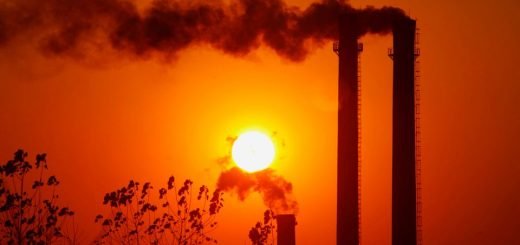The Chinese Communist Party at 100: Mapping Ideological Transformations, Achievements and Challenges
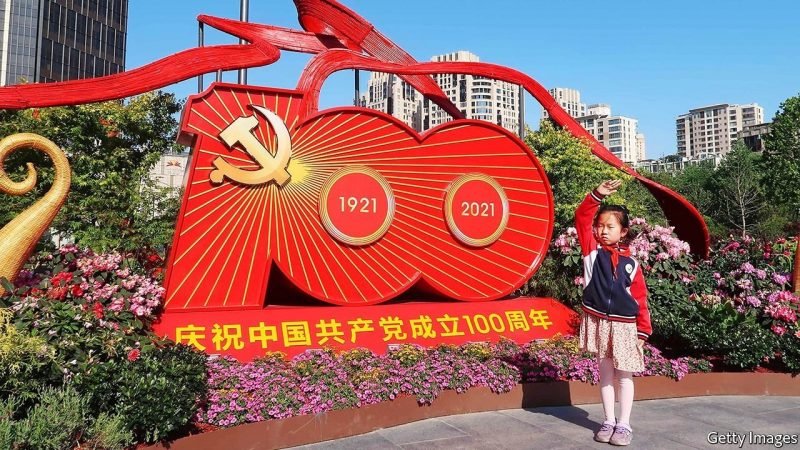
“The Chinese Communist Party is the core of the leadership of the whole Chinese people. Without this core, the cause of socialism cannot be victorious”
-Mao Zedong (Talk at the general reception for delegates to the Third National Congress of the New Democratic Youth League of China. May 25,1957)
Since 1949, when Mao promulgated the birth of the People’s Republic of China atop the Tiananmen Square, the fate of the nation has been entwined with that of the Chinese Communist Party. Over the course of a century, the CCP has undergone various ideological transformations to suit both domestic and external changes. The centennial serves as a good moment to reflect on some of these changes to understand how the CCP manages to run one of the few and certainly the most powerful Communist regimes in the world today.
The CCP was founded on July 1,1921 by a group of intellectuals like Chen Duxiu, Li Dazhao among others who were at the forefront of the May 4th movement of 1919. Inspired by the Russian Revolution and dismayed by the Western response to China’s plight at the Versailles Peace Conference, the CCP found a friend and a guide in the Soviet Union.
The Constitution of the CCP defines the Party as “the vanguard of the Chinese working class, the Chinese people and the Chinese nation”. It defines Marxism-Leninism, Mao Zedong Thought, Deng Xiaoping Thought, Theory of Three Represents, Scientific Outlook on Development and Xi Jinping Thought on Socialism with Chinese Characteristics for a New Era as its “guides to action” with the realisation of Communism being the ultimate goal.
Like the Communist Party of the Soviet Union (CPSU), the CCP too recognised Marxism-Leninism as its official ideology. Marxism-Leninism as a political ideology supports a two stage communist revolution. First, a Bourgeois Revolution as per which a feudal society develops into a capitalist society and second, a Socialist Revolution as a result of the class struggle between the Bourgeoisie and the Proletariat which would lead to the common ownership of modes and means of production and ultimately lead to a stateless,classless Communist society. Marxism-Leninism views the formation of a vanguard party as essential to capture power on behalf of the proletariat and educate them and raise their class consciousness to enable them to take lead of the Dictatorship of the proletariat i.e. rule of the greatest majority of the productive forces.
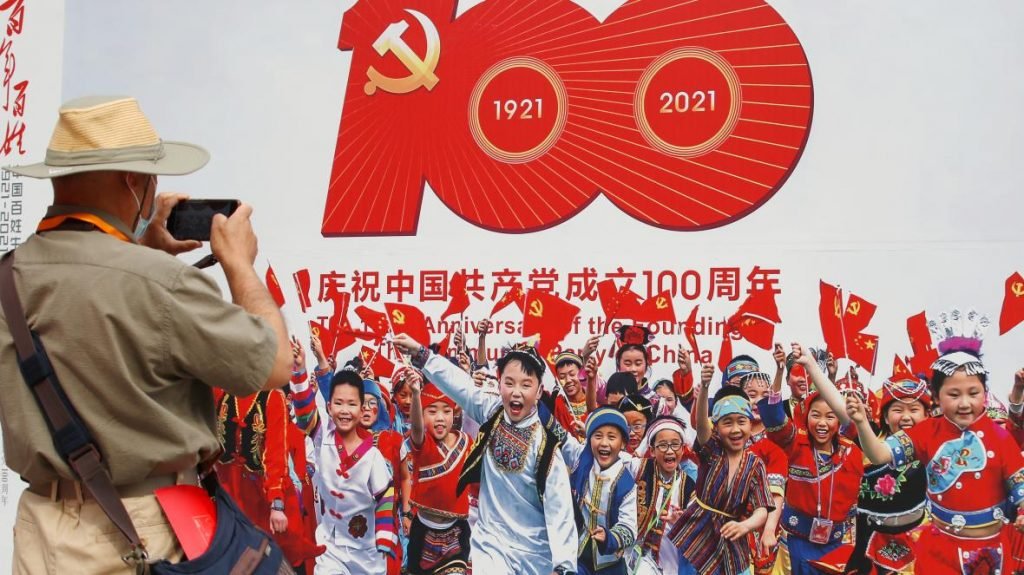
The Mao Zedong Thought ( 毛泽东思想)
The Mao Zedong Thought which dominated the Party ideology from 1949-1976, emerged as a result of Mao’s close engagements in the struggle against landlords in the countryside as well as against the imperial forces. Mao did not view class as mere economic but also as a political and ideological category. He identified “friends” and “enemies” within the existing classes in China. For instance, the Landlords and the Compradore classes were considered to be completely at odds with the cause of the revolution and hence,were to be eliminated while the National Bourgeoisie were seen as sympathetic to the cause and hence, to be incorporated. Mao was quick to recognise the issues with the application of the urban proletariat centric Marxism-Leninism and hence, emphasised on the leadership of the small and landless peasants and workers in the Revolution which was more akin to the “semi feudal, semi agrarian” realities of China where the industrial working class still formed a meagre number. He practically denied the leadership of the Bourgeoisie, claiming them to be too “greedy and regressive” to lead the revolution. He argued that China’s historical characteristics built a unique case where the stage of capitalist development on the path to Socialism could be evaded.
Though certain policies such as the Common Programme for Land Reform and the First Five Year Plan (1953-1958) were successful, certain of Mao’s irrational economic policies such as the Great Leap Forward (大跃进, Dà yuèjìn) failed miserably and pushed thousands of people on the verge of starvation. This disaster could not escape rumblings within the Party and Mao had to step down as the President of the PRC. Rising opposition swayed him towards a series of radical measures as depicted in the Great Proletarian Cultural Revolution (1966-1976). Mao stated that it was not enough to restructure the economy in order to usher in socialism but the revolution must also penetrate the superstructure by eliminating all remnants of feudal and bourgeois ideological traces. He claimed that certain bourgeois elements were trying to corrupt the ranks of the Party through “peaceful evolution” hence, many leaders like Liu Shaoqi who had previously opposed Mao were purged. Hundreds were executed.
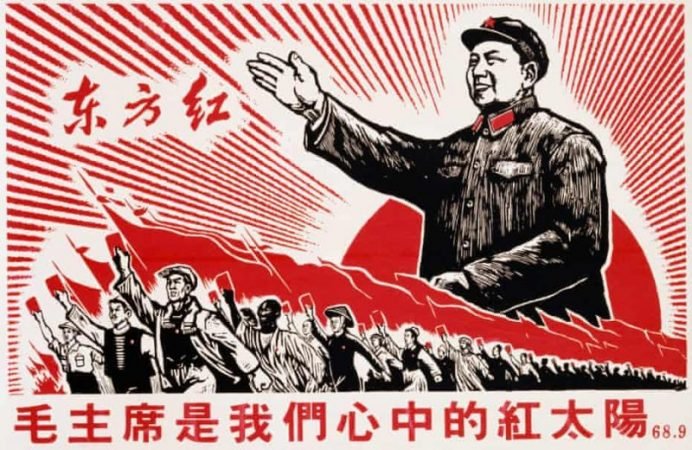
The Deng Xiaoping Thought (邓小平理论)
Post Mao’s death in 1976, the Communist Party was faced with a major task of not just repairing the damage he had left behind but also of restoring the trust of the populace dismayed by several of his violent campaigns. Once the Gang of Four were arrested, Deng Xiaoping, who had himself faced Mao’s wrath, took over the reins of reform. The Third Plenum of the Eleventh Central Committee in 1978 changed the course of Chinese history forever when Deng advocated Opening up of the economy (Gǎigé kāifàng, 改革开放). Deng called for “Four Modernisations” (Sì gè xiàndàihuà,四个现代化) in agriculture, industry,defence, science and technology. He abandoned Mao’s romanticism of poverty, absolute equality and austerity and called for the formation of Xiaokang ( 小康社会, xiǎokāng shèhuì) or a Moderately prosperous society. Communes were broken up and private property was reinstated. Incomes were to be based on productivity rather than equality. As a result of Deng’s “Market Socialism”, foreign trade resumed and several Special Economic Zones were established on the Southern coast. He also extended a reconciliatory arm to both the US and the USSR. Though the Deng Xiaoping Thought brought prosperity to China and eased the resentment of the previous era, it irked some of the hardline Party members.
Emerging Challenges
Two events made the CCP rethink its policy choices. The first was the Tiananmen Square Protests of 1989 which ended in brutal suppression and the second was the fall of the USSR in 1991. While the former exposed the emerging domestic issues of unemployment and lack of freedom of speech and expression, the latter posed a challenge to the rule of Communist Party. The legitimacy of the Party’s rule was under question. It was realised that an ossified party state with a dogmatic ideology was bound to collapse. Changes had to be brought without liquidating the dominance of the Party.
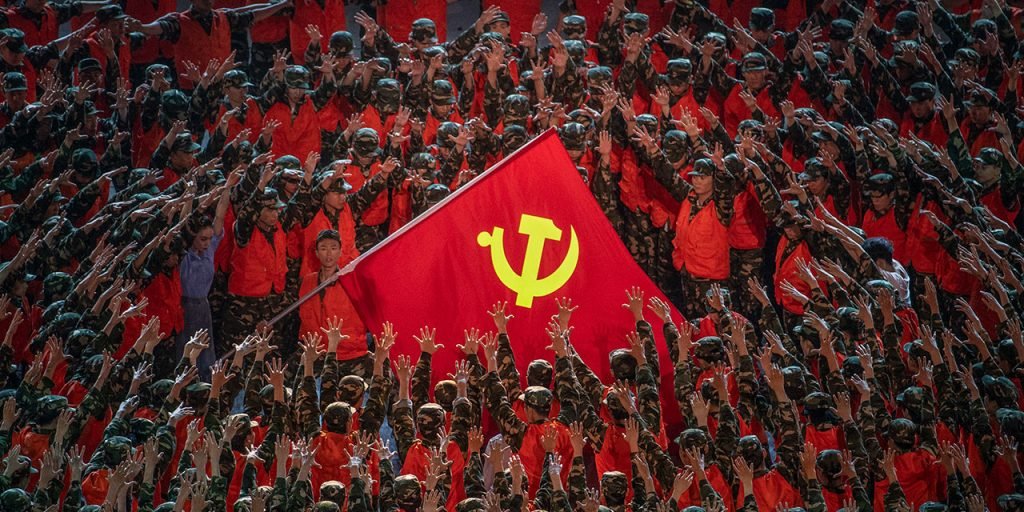
The Three Represents ( 三个代表)
President Jiang Zemin was faced with a major task of maintaining economic growth while appeasing the hardliners within the Party.
A new Five Year Plan was adopted in 1996 with the aim to keep average GDP growth at 8% per annum and to spread wealth more evenly across regions. The party ranks were thrown open to the capitalists, recognising their role in the economic prosperity. Jiang launched an anti corruption movement to sack some of the high ranking party members. In May 2000, He announced the Three Represents as per which the CCP was to represent three concerns:
- China’s development and modernization
- China’s culture and heritage
- The interests of the vast majority of the Chinese people
Through the Three Represents, a strongly worded message was sent that though the economic system had changed, no dramatic political reform was on the cards.
Scientific Outlook on Development ( 科学发展观)
On his retirement during the Sixteenth Congress of the CCP in 2002, Jiang stated “Leadership by the Party is the fundamental guarantee that people are the masters of the country”. Hu Jintao became the new President. The Scientific Outlook on Development was adopted to balance rural, urban, regional development and focus on environmental balance to craft a Socialist Harmonious Society through scientific Socialism. State Owned Enterprises were partly sold to private owners. In 2003, 6 independent candidates were allowed to contest district legislature elections in Beijing.
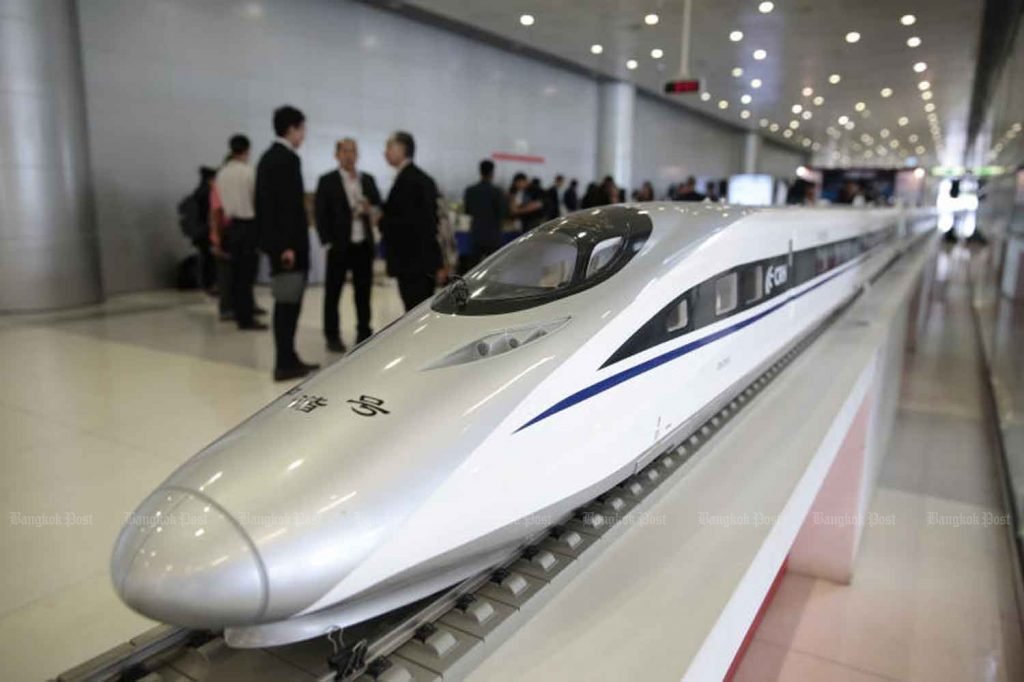
The Xi Jinping Thought On Socialism with Chinese Characteristics For A New Era (习近平新时代中国特色社会主义思想)
Th Xi Jinping Thought on Socialism with Chinese characteristics for a New Era was entrusted in the Party Constitution at the 19th Party Congress in 2017 and in the National Constitution in the First session of the Thirteenth National People’s Congress in 2018. Apart from environmental and a people centric approach, the thought emphasises on ‘One Country, Two Systems’ for Hong Kong and Macau with a future plan of ‘Complete Reunification’. Xi Jinping has also taken up the task of not just strengthening China economically and militarily but also of reinstating strict control over the party lines by asserting Maoist traditions of ‘self criticism’ as a part of anti corruption campaigns. He has increasingly emphasised on patriotic education through the Communist Youth League to re emphasise on nationalism. A memo called ‘Document no. 9’ circulated in the CCP identified seven threats including Western constitutional democracy; human rights; western ideas of media independence among others.
Some Achievements
The very fact that the Chinese Communist Party has stood the test of time since the fall of the Soviet Union is in itself a great achievement. By showing remarkable flexibility in terms of adapting to the need of the hour, be it opening up the economy or recognising the role of capitalists, the CCP has been able to reproduce its legitimacy to rule.
Under the CCP rule, China has recorded remarkable economic growth. In 2019, China’s Gross Domestic Product totaled around US$14.8 trillion, accounting for 16% of the global economy, contributing 30% to the world economic growth.
At the core of the Thirteenth Five Year Plan is poverty alleviation. As per official records, between 2016-2019, more than 50 million people in China’s countryside have thrown off the yoke of poverty.
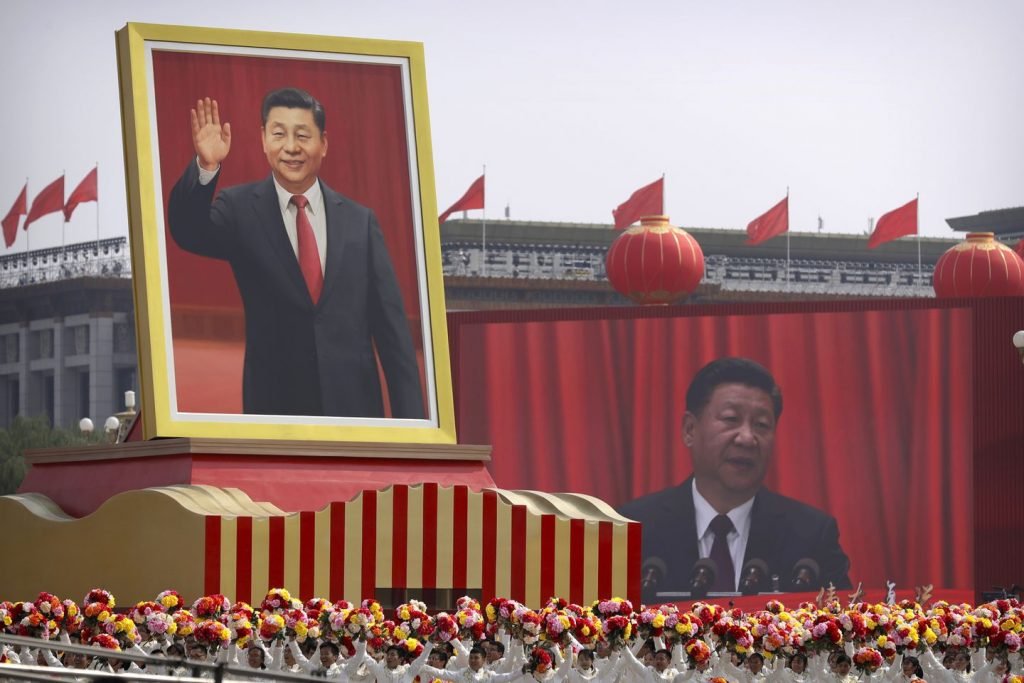
With all the controversy surrounding the emergence of the coronavirus pandemic, China’s response to the outbreak has been hailed by many international organisations including the WHO as a great success. With a centralised epidemic response system and quick action, Beijing was able to control the cases relatively quickly and more efficiently than other nations. Moreover, China was the only major economy to avoid a major economic contraction post pandemic as the GDP increased by 2.1% in 2020. This year, the economy is expected to grow by 8.2% and economists believe that if the trends continue, China would soon surpass the US as the world’s largest economy by 2028.
The Belt and Road Initiative and the Asian Development Bank are some of the other initiatives and institutions through which China is penetrating deeper into the global economy.
Major Challenges
Great achievements are followed by enormous challenges, both internal and external. The outbreak of various democracy protests in China’s autonomous regions such as Hong Kong are a major cause of concern for the CCP. Demands of greater freedom for speech, thought and expression threaten to create instability.
On the external front, the US has been posing a great challenge to China in its attempts to create a front of liberal democracies by calling out Beijing on the issue of Human rights and its ‘unjustified’ maritime jurisdiction in the South and the East China Sea. The Belt and Road Initiative too has come under fire for being a part of China’s ‘debt trap diplomacy’.
It is said Empires decay from within. The CCP has portrayed remarkable flexibility by evolving with the needs of time and by casting off the clutches of dogma. It has been able to successfully trade economic prosperity in lieu of greater political reforms but as China emerges as a superpower, it must bring in greater political reforms domestically such as freedom of speech and expression as well as function in a way more akin to the global world order to show itself as a responsible power.




